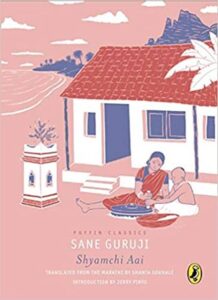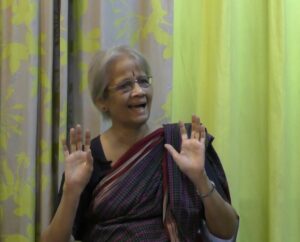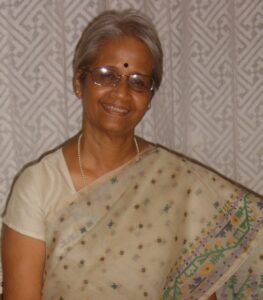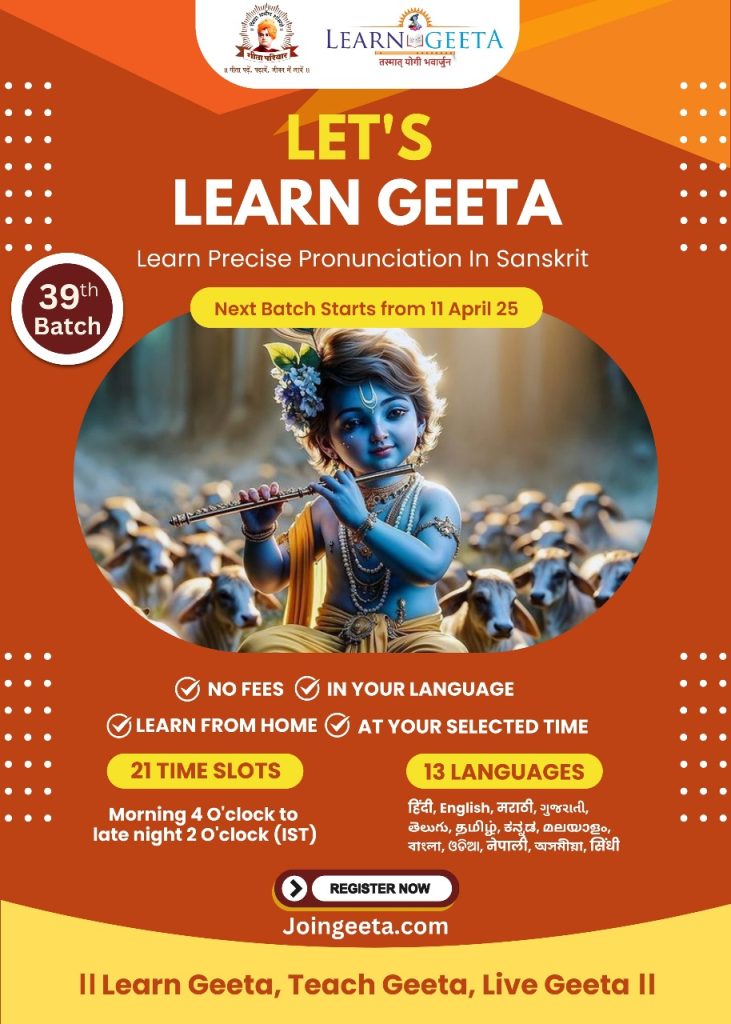A good storyteller must love listening to stories

Noted author, journalist, translator and theatre critic
SHANTA GOKHALE recently translated Shyamchi Aai (Puffin Classics), considered to be the greatest tribute to mother’s love
in Marathi literature. The octogenarian writer talks to
SAURABH TANKHA about transformations in theatre over the
last six decades, the most difficult part of artistic process,
the role her mother played in her life and more…
When you translate intense stories like Shyamchi Aai, is there anything special that you keep in mind?
With any work of translation the only thing I keep in mind is being faithful to the original. The particular thing I had to keep in mind for Shyamchi Aai was its target readership, which is today’s child of 10-12. While being faithful to the original, I had to make sure that my choice of words and the way I constructed sentences would hold a child reader’s interest. The children who read Shyamchi Aai when it first came out were brought up on long-winded sentences and sentiment. Today’s children are different.
How much time did it take you to translate Shyamchi Aai and did it happen during the course that you felt the story could have been any different?
It took me about a year. When I’m translating, I’m with the author completely. I don’t think beyond the story I’m translating to what it could have been or should have been.
The role your mother played in your life…
In my case, both my mother and father were responsible for inculcating in me many of the values that Shyam’s mother inculcates in him – love, honesty, integrity, independence. But it was my mother who put the idea of translation in my mind. She said that since I had command over two languages, Marathi and English, the best use I could put this knowledge to was by translating from one language into the other so that the best literature of either language would be available to those who could not read that language.
It is common perception that the original work when translated into another language tends to lose its essence, its feel, its emotions. Do you agree?
A translation can’t be the same as the original. Every language has its own possibilities and limitations. A translation might ‘lose’ something of the original but it also gains something by the possibilities inherent in the other language. A translation is not after all an act of copying, but of recreation.
A translation can’t be the same as the original. Every language has its own possibilities and limitations. It is not after all an act of copying, but of recreation
Conventionally, authors don’t translate their own works but you do. In your opinion, is the author whose work it happens to be is the best person for the job?
I don’t think the original author is necessarily the best person to translate his or her work. However, most translators are often flummoxed by what the original author means by a word or a phrase. If they are translating a living author, they consult her. When the author herself translates her work, she knows what she means. To that extent, and given that she has an equal command over both languages, she is as good a person as any other.
You have worked as an arts editor, an author, a teacher, a theatre person, an actor, a translator, have written scripts and plays. Which of these roles do you find the most challenging and why?
I have found each of these jobs challenging. As a teacher, it is a very difficult job to hold the attention of a class. Teaching is a specific kind of performing art. You may be a well-known scholar in your subject but that is not enough to get your students as interested in your subject as you are. As a writer you feel isolated. Nobody out there has compelled you to write. You do it because you have to. It’s your life. But if you want to produce something publishable, you have to have discipline. So here the challenge is not only to be open to your own creativity but, having that, to be able to channel it into something productive. Translation is challenging, particular for someone who is herself a writer, because it demands that you subsume your creativity to another’s. You must now serve another voice with as much faith as you serve your own.
Who has been the most inspirational person in your life and why?
My parents. My father was a journalist, a voracious reader and a great traveller. So he showed me the world. My mother was a great manager of the household and all the relationships it involved while continuing to be her own person, a believer in equality, independence and the values that women can give the world.
All art is part of its times. Some art goes beyond its time. As times change, art changes. This has happened to theatre too
What does it take to be good storyteller?
I would say a good storyteller must love listening to stories. Or at least that is how I came to storytelling. I have been the recipient of the most fantastic stories that people have told me about their lives. Reality fires the imaginary world.
How satisfied have you been with your journey so far?
I would not be a writer if I were satisfied with what I have done so far. A writer carries more ideas and stories in her head than she can every put down. So she is perennially dissatisfied. But that is not to say she is dissatisfied with her work. I think I have done the best I could, given my capabilities and the circumstances of my life.
Why is that movies like Ti Ani Itar, Rita, Haathi Ka Anda and Katha Doan Ganpatraonchi do not get the recognition they should? Is there a communication gap between the filmmakers and audiences, lack of understanding among the audiences or is it something different altogether?
First and foremost, I’m not so sure that these films did not get the recognition they deserved. Certainly, there was no publicity machine at the disposal of the producers of these films. Budgets were tight. While I wrote the scripts for three of the above films, they were made by a director who was not always on the same page as me. That created a few problems which the audiences could see quite clearly. Rita was my daughter’s film based on my novel. She wrote the script and directed the film giving it a cohesion that the other three films lacked. While Ti Ani Itar as far as my knowledge goes did not make it to the theatres at all, the other two films got as much attention as they deserved.
Over the last six decades that you have been attached with theatre, what transformations have you witnessed and have they been for the good or bad?
All art is part of its times. Some art goes beyond its time. As times change, art changes. This has happened to theatre too. So one can’t say what happened before was good and what is happening today is bad. Bad in art is what does not belong to its times, when a play is written and staged out of nostalgia for old times. Such plays are by and large ignored.
What is the most difficult part of your artistic process?
The most difficult part of any creative process is to match expression to concept. The idea is somehow always bigger than what you find words and phrases for. That is certainly so in my case. The second problem is the speed of writing. Mine is much slower than my speed of thinking so I always feel I’m lagging behind.
If there was just one thing that was important a writer would write just that one thing. A book is good because every part of it contributes to holding it together
In your opinion, what is that one thing which is the most important part of a book?
If there was just one thing that was important a writer would write just that one thing. A book is a composite whole, a fabric out of which single threads cannot be drawn out. A book is good because every part of it contributes to holding it together.
Fiction or non-fiction…
Both
Favourite childhood book…
Heidi
Favourite childhood author…
Lewis Carroll
Favourite book now…
No favourites. I have enjoyed all the books I have read with a couple of exceptions.
Favourite author now…
I have been enjoying the writings of dozens of contemporary novelists, essayists, playwrights, memoirists, biographers
You are, at present, reading…
Four books – Douglas Stewart’s Shuggie Bain, Chinmay Tumbe’s India Moving, Siddhartha Mukherjee’s The Gene and Feisal Alkazi’s Enter Stage Right






